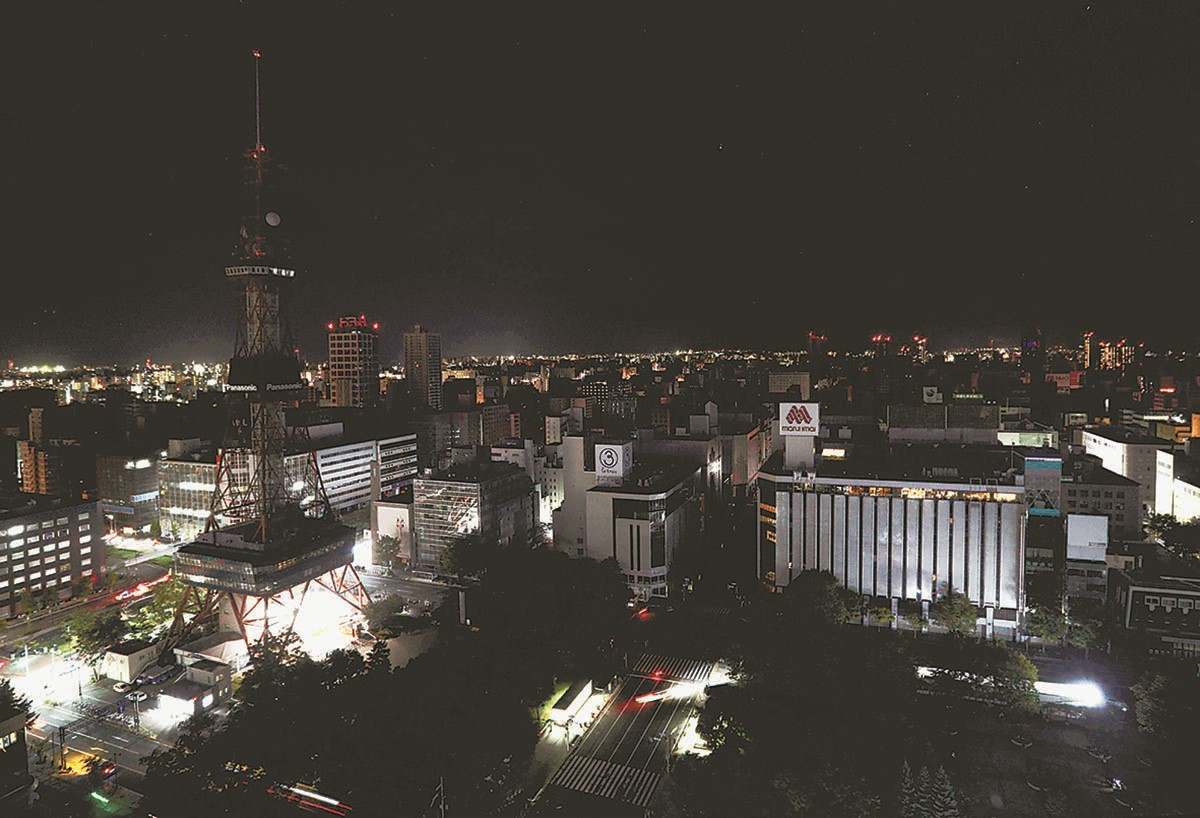
Blackouts continued after Hokkaido Eastern Iburi Earthquake. Sapporo is seen on Sept. 6, 2018
11:00 JST, January 30, 2024
A massive earthquake may be followed by a blackout lasting several days or even a week.
When the Iburi area of Hokkaido was hit by an earthquake measuring 7 — the highest on the Japanese intensity scale — in September 2018, 2.95 million households in almost all parts of Hokkaido were left without power. The Noto Peninsula Earthquake also left about 34,000 households without power on Jan. 2, the day after the quake. Taking measures against the cold is vital in winter. This page includes a fictitious scenario showing what might happen in the event of a power outage.
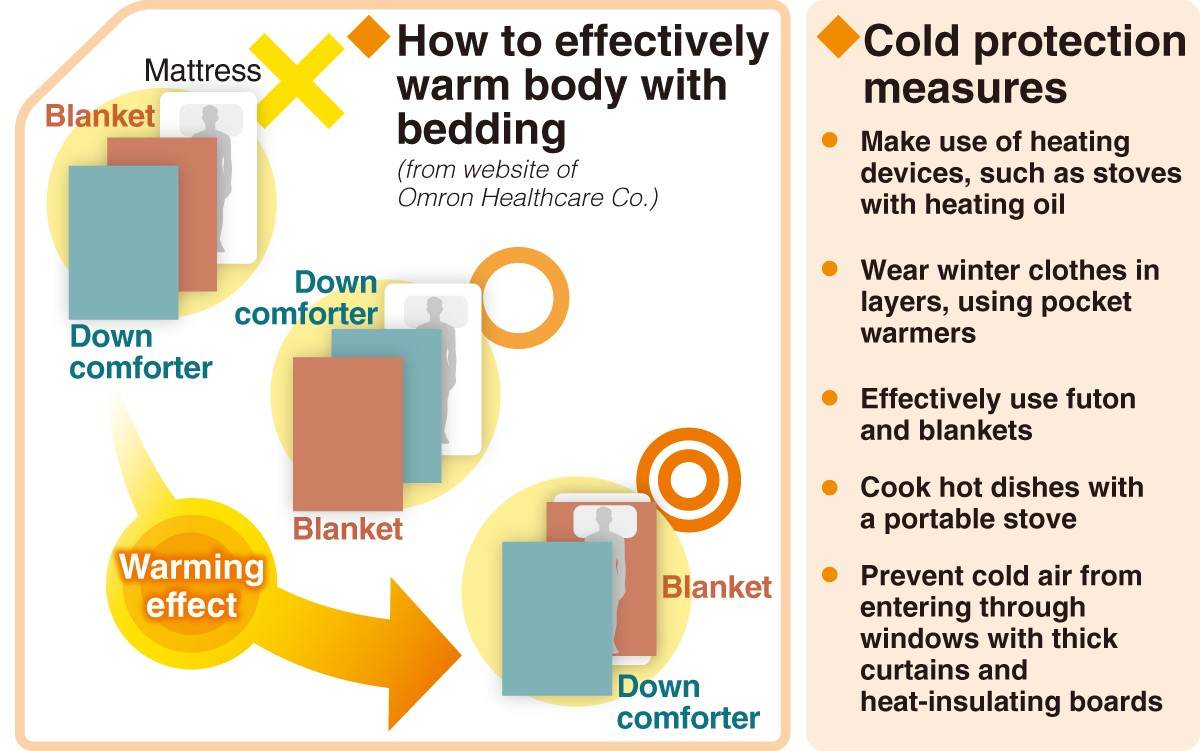
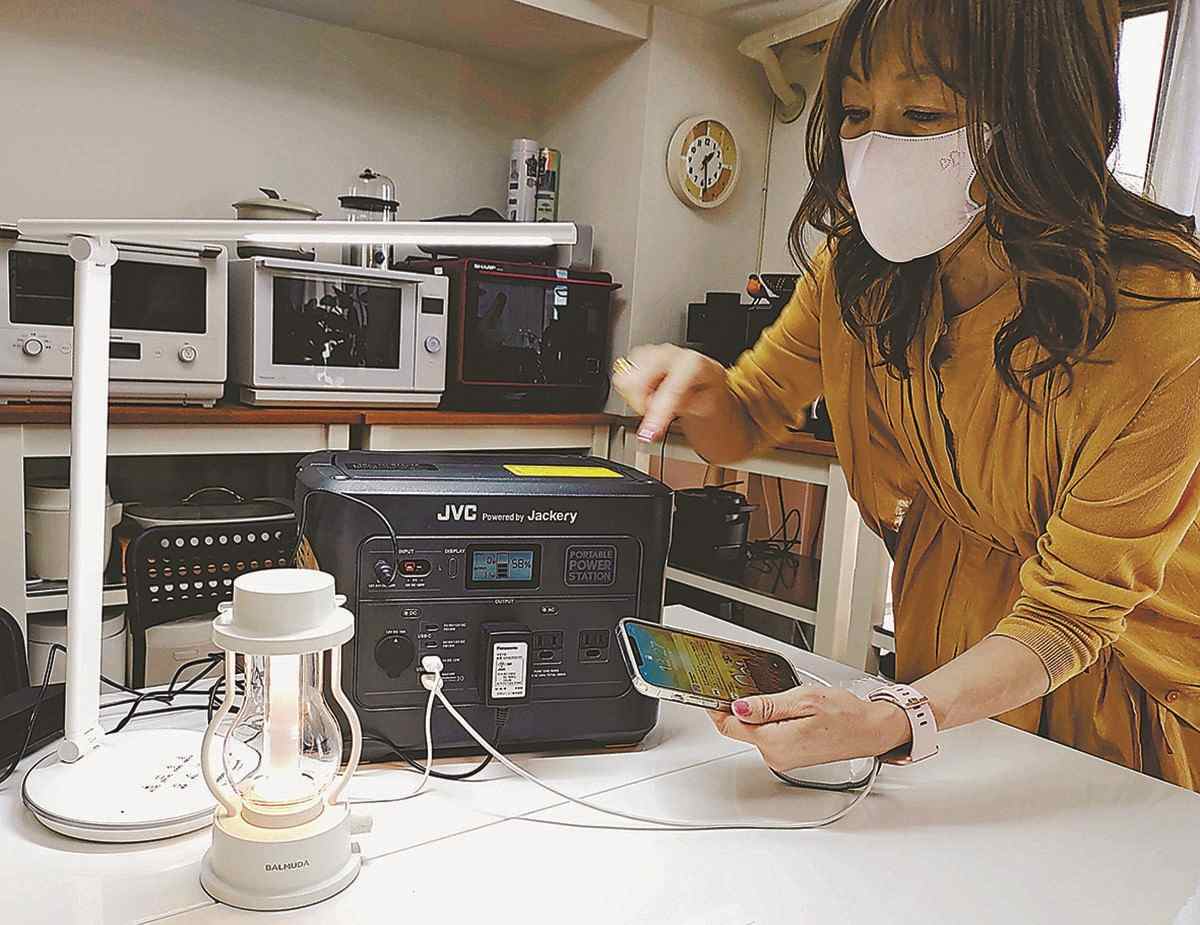
Sally Kamihara usually uses portable electric power sources.
- Recommended items to prepare in advance
- Portable radio
- LED lights, lanterns, flashlights, path lights
- Water, food
- Portable stove
- Slippers
- Portable toilet kits
- Heating devices
- Pocket warmers,
- heat-retention sheets
- Spare batteries
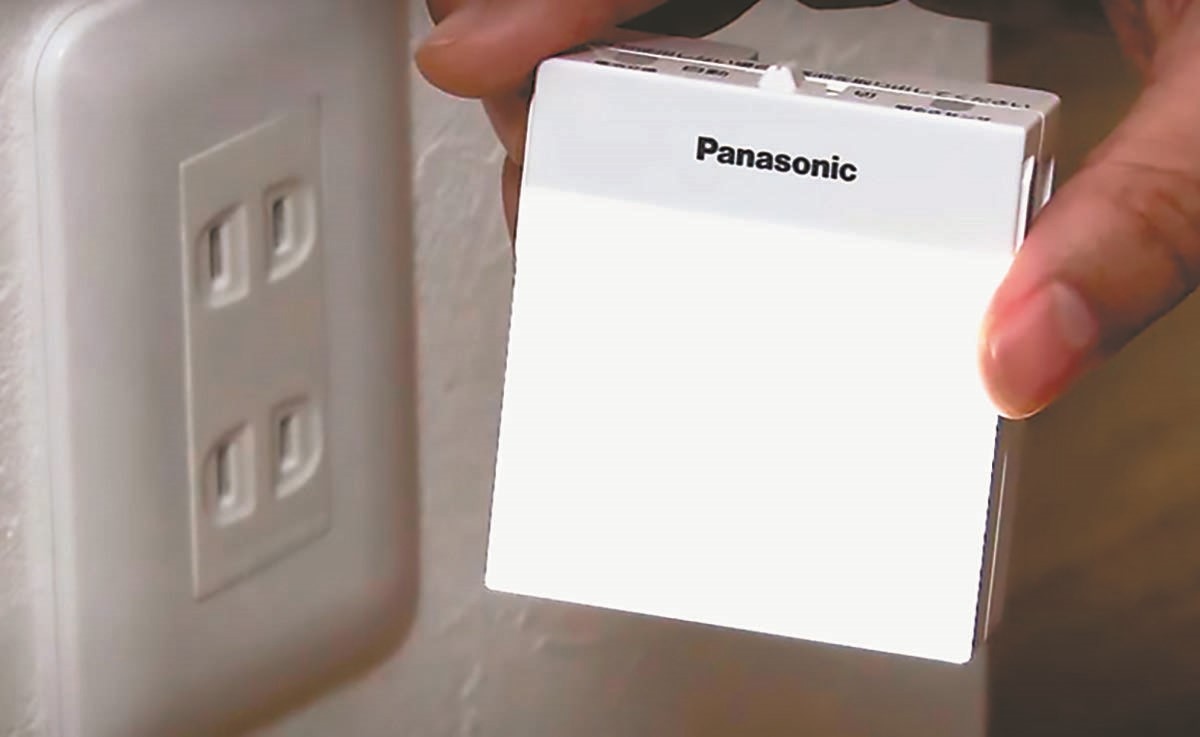
Security light
- Securing power source
- Prepare a large-capacity portable power source
- Prepare 2 or more mobile batteries
- Safety measures
- Install path lights or security lights that automatically turn on
- Wear slippers or other footwear when moving during a blackout
- Don’t keep glassware or pottery where it might break
Big quake on weekday night
A 45-year-old office worker named Hanako lives in a detached house in Sendai with her husband, Taro, 45, and their 6-year-old son.
Shortly after 9 p.m. on a weekday in midwinter, Hanako is watching TV with her family in the living room on the first floor when the house is hit by a large tremor. Hanako shouts, “Take cover!” and the three huddle under the table.
Cupboards collapse, dishes and other items fall and break, and ornamental glassware shatters. All the electrical appliances in the room, including the TV and lights, go out at once, leaving the family in complete darkness. After a while, the shaking stops, but all they can feel is anxiety in the aftermath.

Huddle together as family
Looking out the window, they can see that the streetlights have gone out, and the outside is plunged into absolute darkness. Amid the fear of aftershocks, Taro says, “It’s dangerous to go outside. The roads may have caved in, or traffic lights may have gone out. Let’s stay inside the house until dawn.”
The three retreat to a bedroom on the second floor, using their smartphones as lights.
Electricity is not restored immediately, and they regret not having flashlights and heat packs on hand. The heater does not work, and the room is cold. Their son begins to shiver, saying, “I’m cold.” In the dark room, the family huddles together, wearing clothes in layers and staying together under futon blankets while trying to keep their spirits up.
Use portable power supply
Taro says: “I just remembered! We have a portable power supply for camping in the storeroom.” He goes to get it.
There is enough electricity left in the power supply to charge their smartphones and other devices. An LED light built into the device lights up, which comes as a relief.
Fortunately, the family has about a week’s worth of water and emergency food packs as well as a portable gas stove, which they use to cook pre-packed hot pot meals and oden to keep themselves warm.
Hanako checks a disaster prevention app on her smartphone to learn that an earthquake with an intensity of upper 6 occurred, apparently causing a massive blackout. Hanako thinks the outage may last for several days but hopes the power will be restored soon.
***
Proper preparation now is key to facing blackouts later
During a large-scale blackout in Hokkaido, traffic lights were out, and people formed long lines to recharge their smartphones at city government offices.
When an earthquake occurred off Fukushima Prefecture in March 2022, about 2 million households, mainly in the Tokyo metropolitan area, lost electricity.
According to Nobue Kunizaki, head of the Risk & Crisis Management Educational Institute, “If blackouts last for long periods in winter, the inside of the house becomes as cold as outdoors, and the risk of suffering from hypothermia or other health problems increases. It is important to take measures to protect the body from low temperatures.”
In regions with cold climates, stoves that use heating oil and other heating equipment not powered by electricity need to be prepared. However, that type of heating equipment should be used with proper ventilation because there is a risk of carbon monoxide poisoning.
If people prepare portable gas stoves and use them to cook hot dishes, they can simultaneously warm their bodies and the inside of their home.
People can also protect against low temperatures by wearing thick jackets and other winter clothes in layers and using pocket warmers and heat-retention sheets made of aluminum.
Omron Healthcare Co., a Kyoto-based company that develops and sells health appliances, introduces how to skillfully use futon bedding as insulation on its website.
Laying blankets under the body can help retain body heat and maintain a warm temperature. Also, covering the body directly with a down comforter makes the down expand and increases its heat-retention capability.
Flashlights, corridor lights
Nighttime in winter is long. According to Takamasa Wada, a disaster crisis management adviser, “To secure light, it is essential to make advanced preparations.”
Flashlights and other lighting devices should be kept in a box or a bag and placed in a designated location in a bedroom or living room.
Lights that activate automatically should be connected to outlets in corridors and other areas with foot traffic. They can be removed from the outlet and used as an alternative to flashlights.
Candles should be avoided because they are a fire risk.
Wada also pointed out that “In addition to water and food, the third reserve stock that needs to be secured is electric power.”
Sally Kamihara, who matches people with home appliances that meet their lifestyle desires, recommends portable electric power sources. Her advice is to prepare one or two devices with large storage capacities that are fully charged in advance.
“They can be used to power electric blankets and recharge smartphones,” she said.
Smartphones need to be set to energy-saving modes, and screen brightness needs to be reduced. Two or more portable batteries with large storage capacities should be prepared to recharge smartphones.
Careful about toilet water supply
What tends to be overlooked when preparing is the possibility of cuts to the water supply of toilets. If electric-powered water pumps at condominiums stop working, there is no tap water. In those cases, residents may be unable to use toilets.
A week’s supply of portable toilet kits should be prepared. A three-day supply of drinking water in plastic bottles and tap water in polyethylene tanks and plastic bottles should also be prepared.
Additionally, when a blackout occurs, it is essential to unplug electric appliances from electric outlets to prevent fires when the electricity supply is restored. If people evacuate from home, breakers must be turned off.
***
Spirit of mutual support goes beyond borders

Then U.S. President Calvin Coolidge, left, presents the Medal of Honor in March 1924 to a U.S. serviceman who rescued a woman from the Great Kanto Earthquake.
“Help each other in times of need.” This is the spirit of mutual help that has taken root in Japan, a country that respects conformity, but the spirit may be universal. Last year, this thought occurred to me when I learned of the assistance provided by the United States in the aftermath of the Great Kanto Earthquake a century ago.
Back then, Japan had increased its presence in the international community through its victory in the Russo-Japanese War and World War I. But expanding its interest created a sense of caution in the West.
Anti-immigration movements aimed at Japanese had intensified in the United States, and the Great Kanto Earthquake occurred amidst tensions between the two countries. Then U.S. President Calvin Coolidge (1872-1933) decided to provide aid to Japan. He sent relief supplies by naval ships, launched a radio campaign in support of Japan and collected about $12 million in donations. This amounts to over ¥100 billion today, making the United States the most generous donor in the world.
At the World Bosai Forum held in Sendai in March last year, the World Bosai Award was given to Coolidge posthumously.
Why did Coolidge call for support for Japan? Tohoku University Prof. Yuichi Ono, who studies Coolidge’s achievements, gives the following reasons: Coolidge had positive feelings toward Japan and had served as governor of Massachusetts, the residence of John Manjiro (1827-1898) — a translator who worked as a bridge for Japan-U.S. relations during the last days of the Tokugawa shogunate; he was a Christian and valued humanitarianism; and he wanted to reciprocate Japan’s donation for the 1906 San Francisco earthquake.
“There may have been an aspect of disaster diplomacy, aiming to ease bilateral tensions by providing assistance through a disaster,” Ono said.
When the Great East Japan Earthquake struck 88 years after the Great Kanto Earthquake, the U.S. military deployed Operation Tomodachi to help remove debris and transport supplies.
As a reporter covering the news from the paper’s Kesennuma branch in Miyagi Prefecture, I saw up close the U.S. servicemen working hard. I will never forget the relieved faces of the disaster victims.
The bond between Japan and the United States has been passed down through the ages. If the United States were to suffer from a severe disaster, Japan should be proactive in extending a helping hand. We should cherish the spirit of mutual support that transcends national borders.
Top Articles in JN Specialities
-
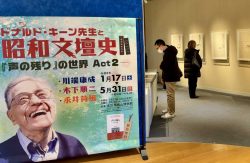
Exhibition Shows Keene’s Interactions with Showa-Era Writers in Tokyo, Features Newspaper Columns, Related Materials
-

Step Back in Time at Historical Estate Renovated into a Commercial Complex in Tokyo
-

The Japan News / Weekly Edition (1/30-2/5)
-
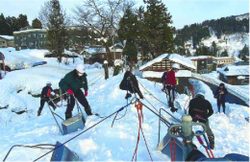
Prevent Accidents When Removing Snow from Roofs; Always Use Proper Gear and Follow Safety Precautions
-

Senior Japanese Citizens Return to University to Gain Knowledge, Find New Career, Make Friends
JN ACCESS RANKING
-

Japan PM Takaichi’s Cabinet Resigns en Masse
-

Japan Institute to Use Domestic Commercial Optical Lattice Clock to Set Japan Standard Time
-

Israeli Ambassador to Japan Speaks about Japan’s Role in the Reconstruction of Gaza
-

Man Infected with Measles Reportedly Dined at Restaurant in Tokyo Station
-

Videos Plagiarized, Reposted with False Subtitles Claiming ‘Ryukyu Belongs to China’; Anti-China False Information Also Posted in Japan























